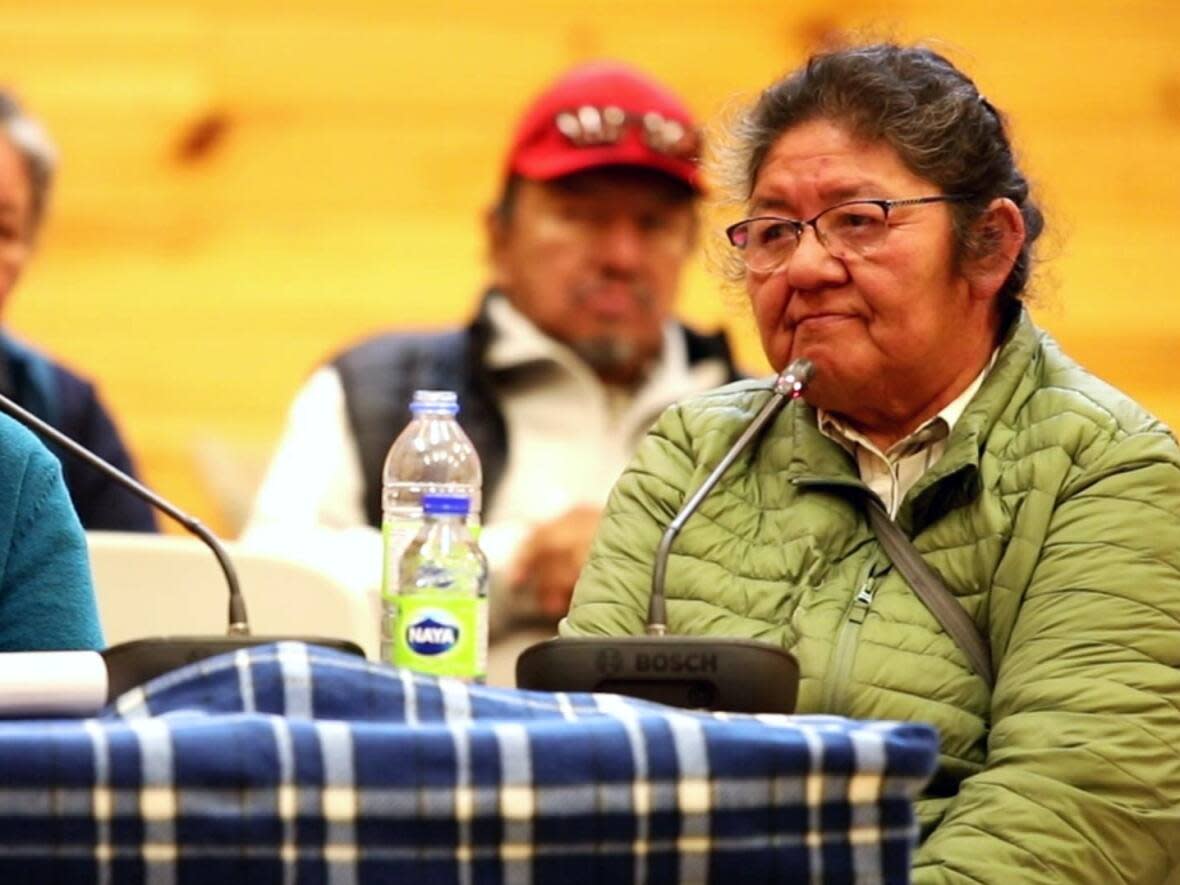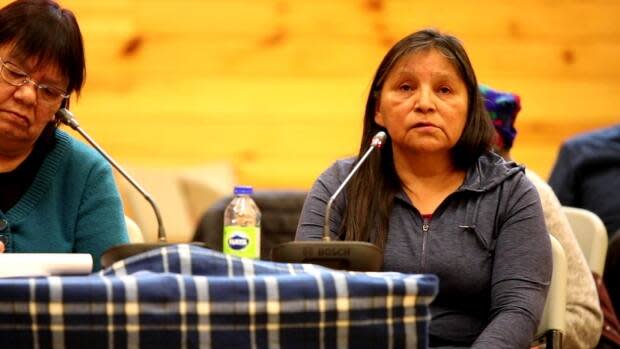Innu children fearful of returning to school because of abuse, inquiry hears

WARNING: This story contains distressing details.
Testimony for the inquiry investigating the treatment of Innu children in care continues in Sheshatshiu this week, as survivors share their personal stories of abuse.
"They really had a happy life out there," Marie Martha Andrew told the commissioners Wednesday, speaking about Innu life prior to colonization.
"They had healthy lives. They lived in a healthy environment."
Andrew, a Sheshatshiu resident, grew up hearing stories from her mother of living on the land before missionaries and government workers told the nomadic Innu to not take their children to the country, forcing them instead to go to school.
"The damage ... was being done right there, as soon as they were settled in the community," Andrew said.

In the '60s and '70s, Andrew attended day school. At the beginning of each fall, children were scared to return to the classroom, she said.
She testified the teacher, who was also a priest, abused the children and was prone to violent outbursts. She recounted a memory of a girl who asked for a pencil, only for the priest to kick her table over, causing her to hit the ground, nose bloodied.
"These are the people you're supposed to trust," Andrew said. "There's too much anger when it brings back memories and how he treated us, just like we weren't people. He made us live in fear."
Andrew, now a teacher herself, says she's been working to change the future for young children, but told the commission she believes systemic changes are needed, particularly in foster care. Andrew said family and community members should be considered before children are sent to live with families outside of Sheshatshiu.
She told the commission about her own experience fighting to raise her nephew after she said social workers had prepared to fly him outside of Sheshatshiu.
"I, as one of the community members, do not want to see any more of the kids being taken away. We are quite capable of taking care of our kids," Andrew said.
"We are human beings too.... People have to remember that."
Commissioners James Igloliorte, Anastasia Qupee and Mike Devine have been tapped to investigate systemic issues with the child protection system to make recommendations.
Healing through sharing: Sexual abuse survivor
The commissioners also heard from a woman who testified she wasn't allowed to see her mother on her deathbed.
"There was so much [tuberculosis] in our community, and I was one of them," 61-year-old Mary Juliana Rich told the commissioners.

Rich said as a child, her mother would take her to the country. But growing up, there was an elder in the community who would sexually abuse her, Rich said, adding she was too afraid to report the abuse to her mother.
Then when she was eight, tuberculosis spread in her family, Rich said. Rich was in the hospital with TB when her sister and a priest came to her bed.
"I said, 'I wanna see our mom,' but I wasn't allowed to go," Rich said.
Rich testified she wasn't allowed to see her mother or attend the funeral. After the death, Rich and her brother were placed into the custody of her siblings. At that time, she said, another elder started to come into her room at night to sexually abuse her, unbeknownst to her family.
"It was hurting me," Rich said. "Like where, where do I really belong?"
Rich told the commission she's still haunted by her childhood experiences inside government institutions, and believes children under care inside the community need support to protect them from predators.
Years after the abuse, Rich said she confronted her past and phoned her brother. Rich said she told him everything and he became emotional, asking if there was something he could do.
"'I'll forgive you about what happened,'" Rich said she told him. "'Of all those years,' I said, 'you've been looking after me. I want to tell you that I forgive you and I want to move on, and I'm so thankful that you raised me.'
"Since I shared my story, that's how I start my healing," Rich said. "At times I do have flashbacks still, but I have to keep going 'cause I don't wanna look at the past."
Meetings are continuing at the Sheshatshiu Youth Centre until a community feast on Friday.
Phone numbers on the inquiry website are available for anyone in Natuashish, Sheshatshiu or elsewhere in the Labrador-Grenfell Health region looking for healing and crisis help, and anyone in the province can call 811, any time, for mental health support.


